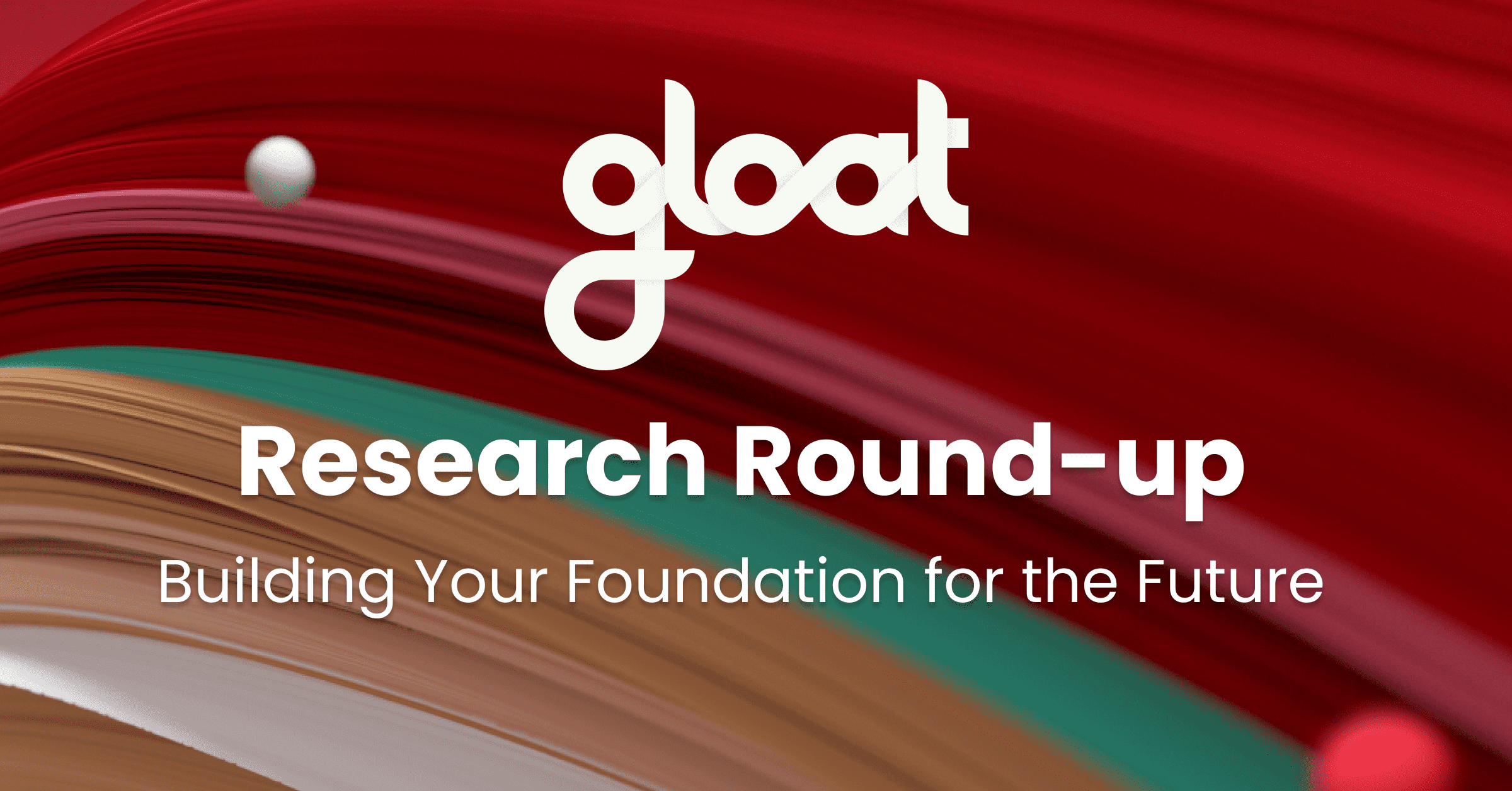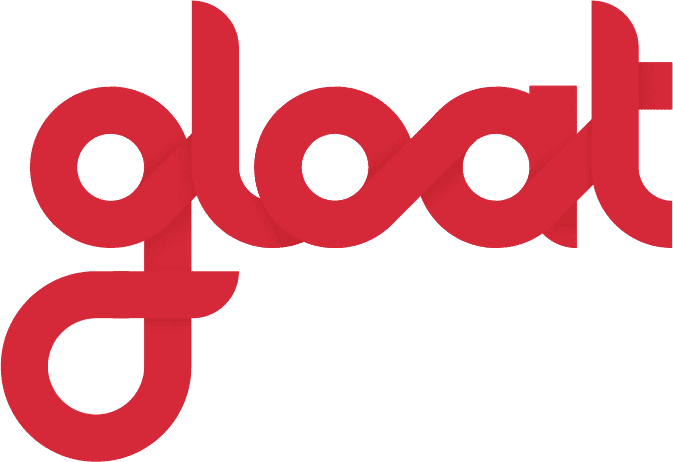November research round-up
What I’m Reading, Listening to, and Thinking About in the World of Talent Marketplaces — Building Your Foundation for the Future

2022 isn’t fast approaching anymore; it’s here. In just a few weeks, we will ring in not only the new year but the start of an entirely new chapter. We will pivot beyond COVID-19, and enter a decade dedicated to reimagining and re-architecting work, workforces, and workplaces into multi-chapter portfolios of lifelong reinvention in a hybrid world.
With this fresh start comes several calls to action that leaders are going to need to prioritize now if they want to set up their organizations for success in the next chapter of work. We’re all going to need to put skill-building at the heart of our transformation strategies, embrace flexibility and autonomy, and empower our people to fulfill their own definitions of purposeful work. And this will only become possible if we step away from outdated operating models and obsolete technology, and turn our attention towards the new maps, mindsets, and tools that our new world of work demands.
A handful of pioneering organizations have already begun harnessing game-changing innovations like talent marketplaces to build a launchpad for their 2022 strategy. They’re already democratizing career opportunities, putting their people at the helm of their own professional development, and unlocking their workforce’s unsuspected potential. It’s time to learn from their best practices and rewrite our own rules, which is why I am dedicating my last research roundup in 2021 to spotlighting the building blocks and revolutionary insights we will need to hold onto as we carve our path forward. Here are the lessons, breakthroughs, and actionable frameworks I hope we all can take with us into this next chapter:
READ: What’s new in thought leadership about the future of work
Great Resignation? Tech Workers Try a Great Reconsideration Instead, WIRED, by Arielle Pardes
By now, we’re all familiar with the Great Resignation. But what about the Great Reconsideration? WIRED writer Arielle Pardes introduces this new concept and explores how it’s taking hold of employees in the tech industry. She explains that workers in high-demand jobs, such as engineering, are reevaluating their current roles and searching for positions that will enable them to make a difference. While swanky campuses and lavish perks may have lured tech employees to accept roles five years ago, these workers now are putting a premium on purpose and wellbeing.
A New Language for Digital Transformation, The Wall Street Journal and Deloitte, by Rich Nanda, Ragu Gurumurthy, Deborah Golden, Sam Roddick, Brenna Sniderman, and Diana Kearns-Manolatos
If you’re currently on a digital transformation journey, you’re not alone. A whopping 85% of CEOs report accelerating digital initiatives during the pandemic. However, the vast majority of these leaders are struggling to articulate their overarching strategy. To get everyone on board with your digital transformation, you’re going to need to look beyond the technological component and adopt a strategy-first approach. This piece by Deloitte spells out five imperatives that will help leaders develop a common framework for transformation initiatives that can be communicated across their organization.
In a ‘Workers Economy,’ Who Really Holds the Cards?,The New York Times, by Emma Goldberg
By now, we all know that workers have the upper hand in the employee-employer relationship. But how much power do they really have? New York Times writer Emma Goldberg explores how employees’ attitudes have changed in the aftermath of the pandemic and shines a spotlight on some of the steps leaders are taking to win over segments of their workforce, particularly frontline employees. As we recalibrate our strategies, we’re all going to need to take stock of our current employee experience and reimagine what the new employment deal might look like.
What Bosses Really Think About the Future of the Office, The New York Times, by David Gelles
We might have an idea of what employees are looking for in our new world of work, but what about their bosses? What do managers and C-level executives have to say about the direction our next chapter is headed in? Quite a lot, New York Times reporter David Gelles reveals in one of his recent Corner Office columns. Gelles profiles several business leaders to get their thoughts on the wins, and losses, associated with our new, hybrid reality. While sentiments vary, the executives touch on one truth that’s universal: there’s no going back to the way things used to be.
LISTEN: What I’ve been playing on repeat
How Schneider Electric is Building a High-Touch, High-Tech and Inclusive Culture, HR Leaders Podcast, by David Green
There’s nothing better than seeing our friends who are at the forefront of reimagining work getting the recognition that they deserve. In a recent HR Leaders podcast episode, David Green sits down with Schneider Electric’s Chief Talent and Diversity Officer, Tina Kao Mylon, to discuss how the organization is democratizing career opportunities with their talent marketplace. If you’re looking to level the playing field and make real strides towards equity and inclusion in 2022, think of this as required listening.
THINK: What research and studies are saying about our path forward
6 Strategies to Boost Retention Through the Great Resignation, Harvard Business Review, by Frank Breitling, Julia Dhar, Ruth Ebeling, and Deborah Lovich
For better or worse, the challenges of the Great Resignation aren’t going away any time soon. Recent research from Boston Consulting Group reveals that 57% of employees across the globe are considering a job switch during 2022. Rather than adding new benefits or even upping salaries to hold onto top talent, this Harvard Business Review article offers six strategies that will help you get to the heart of the issues that are driving workers to resign in the first place. Recommendations include providing growth opportunities, helping employees find their purpose, and prioritizing culture and connection.
Make Hybrid Human, The Economist, with Dr. Prithwiraj Choudhury
Since it’s clear that hybrid work is here to stay, what can we do to make the most of this model? Dr. Prithwiraj Choudhury offers his insights for embracing hybrid work in the immediate future, as well as some predictions for how these flexible working policies will evolve in the years to come. He also pinpoints some of the top benefits associated with our hybrid environment, including the potential productivity boost, as well as broader talent pools no longer limited by geographical confines.
ICYMI: What I keep coming back to
Beyond the Job, Deloitte, by Susan Cantrell
It’s no secret that the working world has changed dramatically. The traditional concept of a job is becoming obsolete. Deloitte’s Susan Cantrell explores our departure from mechanistic, industrial models and the emergence of a more fluid, human and digital future that has evolved in its place. As we enter our new, jobless chapter, we’re going to need technology that removes some of the friction associated with deploying skills to work, which is exactly where a talent marketplace can come into play. Cantrell spotlights the impact these platforms can have, and even uses our friends at TATA Steel as a shining example of what can be achieved when we think outside of the confines of a traditional, job-based workplace model.
Revisiting the Art of Apprenticeship to Unlock Continuous Skill Development, McKinsey, by Lisa Christensen, Jake Gittleson, Matt Smith, and Heather Stefanski
Skills are the fuel we’re all going to need to react quickly and prepare for the future of work. But when it comes to building competencies in the most efficient and meaningful way, some leaders find themselves at a loss. To bridge these gaps, McKinsey suggests revisiting “the lost art of one-on-one learning”, also known as apprenticeships. Their article explores the unique benefits that differentiate apprenticeships from other forms of experiential learning like mentorships and sponsorships, as well as sharing some best practices to kick off an apprenticeship initiative of your own.
How an Innovative Culture Drives Business Growth, Fast Company, by FastCo Works
I mentioned that a handful of pioneering organizations have begun building their foundation for the future, and there’s no doubt that Nestlé is one of these select few. If you want to see what workforce transformation looks like in action, check out this Fast Company piece which chronicles how Nestlé was able to simultaneously drive business growth while unlocking career opportunities for employees. You’ll also discover the pivotal role that the organization’s talent marketplace has played in fueling innovation and empowering every team member to take ownership of their own professional progression.
GIVE: Presents that everyone in your network will appreciate
Holiday Gift Books 2021: Business, Wall Street Journal, Belinda Lanks
Yes, the end of the year is a time to strategize, but it’s also a time to celebrate and connect with family and friends. If you’re looking for some inspiration for your holiday gifting, don’t miss this round-up of books curated by the Wall Street Journal. I’m honored that my own book, Work Disrupted, earned a spot on their Business list, and I encourage you to check out all of their recommendations to round out your holiday reading.
CONNECT: What future-fit organizations and leaders are talking about
Kathryn Wilton C. Psychol, Linkedin
As we look ahead to 2022, we also need to reflect on some of the major milestones that we’ve achieved over the last 12 months. I’d like to close this research roundup with a special shout-out to our friends at First Abu Dhabi Bank, who successfully launched their talent marketplace just a few weeks ago. I was thrilled to speak at a fireside chat with some of their leaders, who share my vision for future-fit skill-building and cultivating the right culture for talent.
Let us know what you would add to our list.





